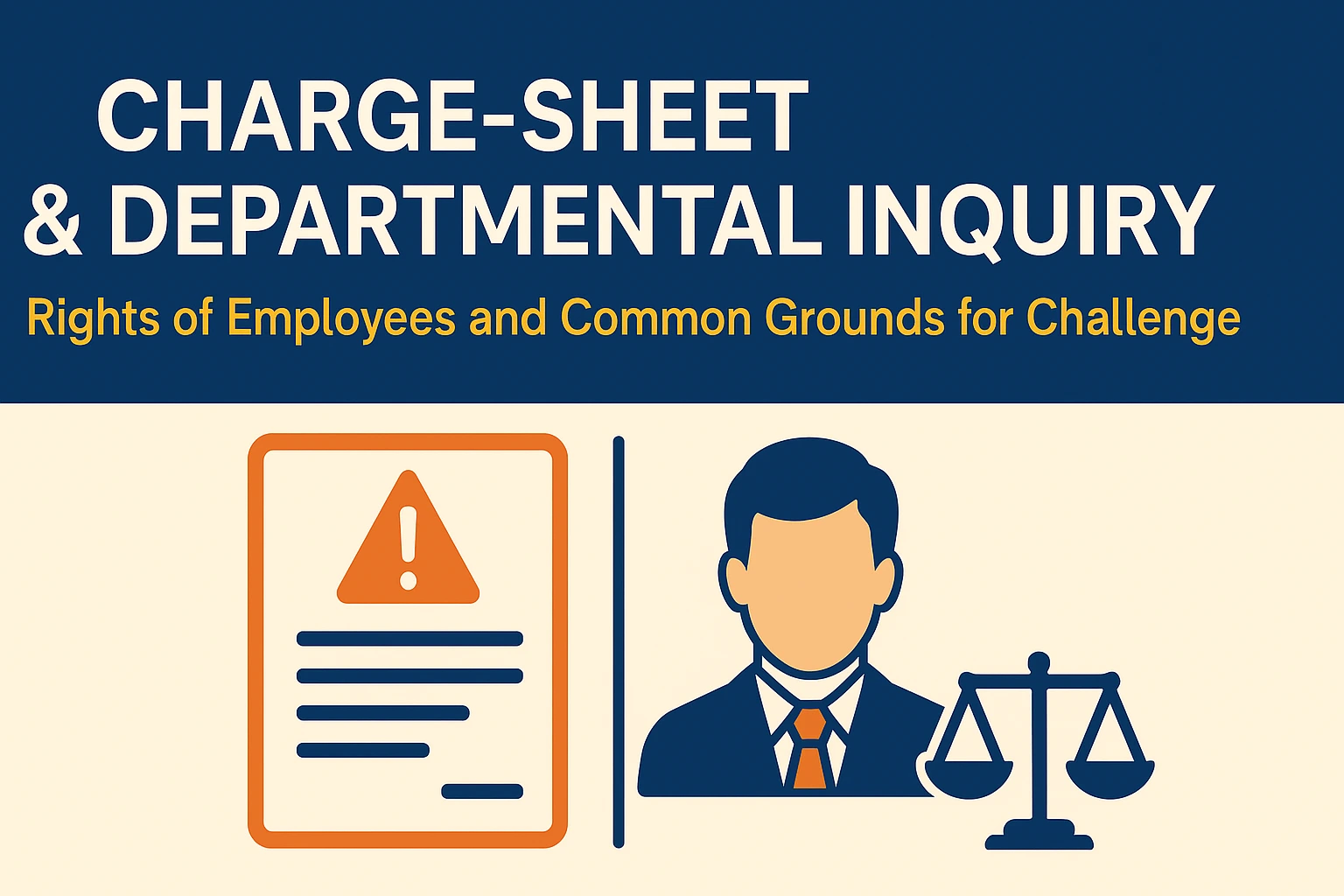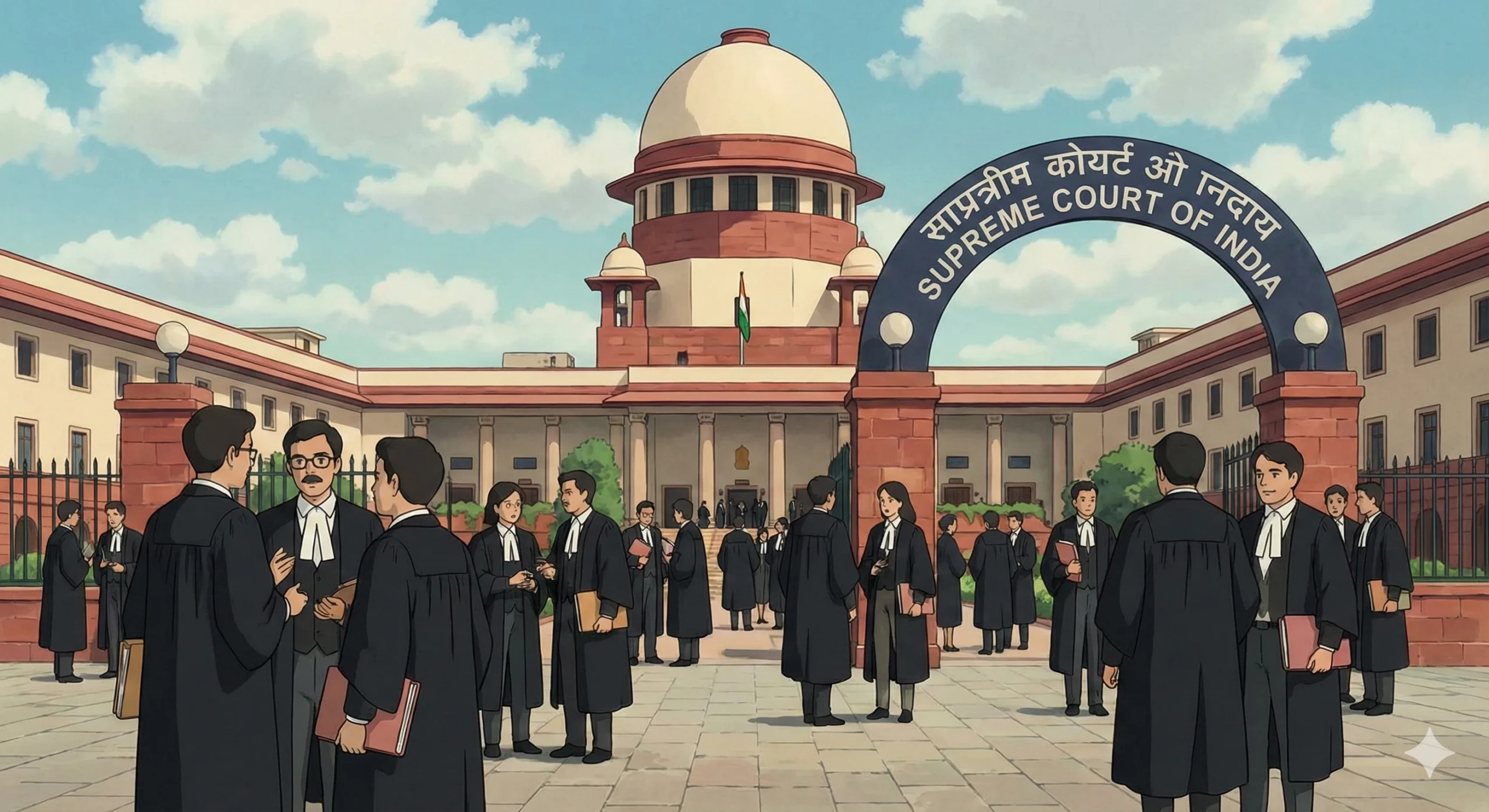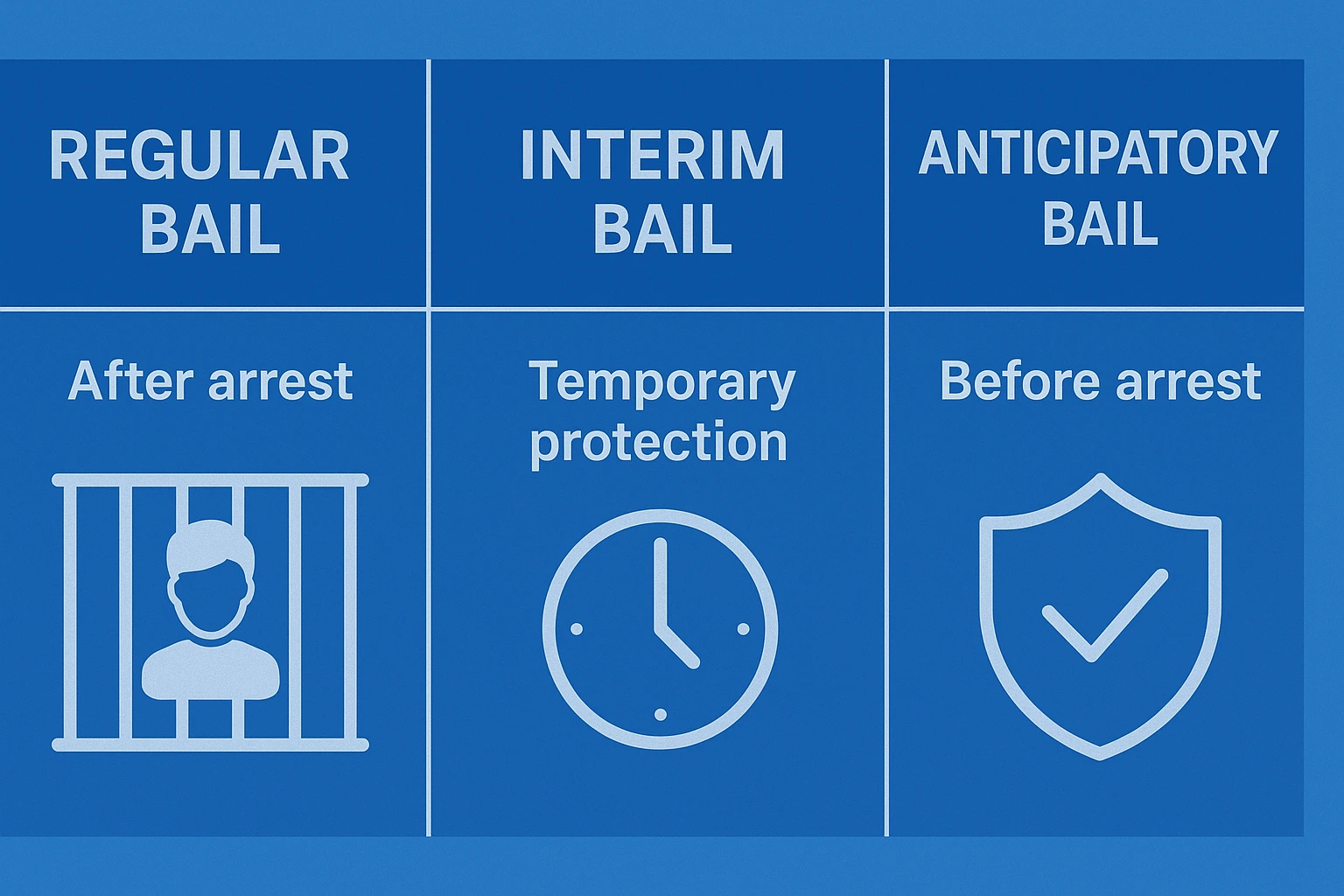
How to Challenge Suspension Orders: Under PCS Rules and PCS (Punishment & Appeal) Rules
Suspension is one of the most commonly used administrative tools in government service. However, it is also one of the most misunderstood and misused actions—especially in Punjab government departments. Many employees are placed under suspension without clear reasoning, delayed charge-sheets, or prolonged enquiries that drag on for months or even years.
If you are a Punjab Government employee wondering whether you can challenge your suspension order, this guide will help you understand the process step-by-step under:
-
Punjab Civil Service Rules (PCS Rules)
-
Punjab Civil Services (Punishment & Appeal) Rules, 1970, abbreviated here as PCS (Punishment & Appeal) Rules, 1970
⚖️ Legal & Regulatory Framework — What rules apply
- The PCS Rules (Volume I, Part I) regulate general conditions of service — pay, allowances, suspension, etc. (S3WaaS)
- The PCS (Punishment and Appeal) Rules, 1970 govern disciplinary matters, imposition of punishment, appeals, and also suspension orders when departmental proceedings are initiated. (India Code)
- Under Rule 4 of the PCS (Punishment and Appeal) Rules, 1970, suspension can be ordered in certain circumstances (e.g. when disciplinary proceedings are contemplated or pending). (CaseMine)
- Suspension is not a penalty itself, but a temporary administrative measure. (CaseMine)
Therefore, if you wish to challenge a suspension order, you base your challenge on the provisions of PCSPA (for procedure and appeal) and PCS Rules (for conditions during suspension).
✅ When / on what grounds you can challenge a suspension order
You (or your representative) may challenge a suspension order (or its continuation) under any of the following circumstances:
- The suspension order was issued without lawful authority — e.g. authority lacked power or failed to follow the procedure laid under PCS (Punishment and Appeal) Rules, 1970.
- No charge sheet was issued, or no departmental proceedings were actually initiated — yet suspension was ordered or extended. Courts have held that suspension under PCSPA must be preceded (or accompanied) by charge-sheeting or at least contemplated departmental action. (CaseMine)
- Violation of fundamental procedural safeguards / principle of natural justice — e.g. no opportunity to defend, no show-cause notice, absence of proper reasons in writing, arbitrary extension. Judicial precedents have struck down suspension orders for such violations. (CaseMine)
- Undue delay or unreasonably prolonged suspension without deciding the departmental enquiry or without issuing final orders. Continuation of suspension for indefinite or very long periods may be challengeable on fairness and service rights ground. Some judgments treat protracted suspension as abuse of authority. (CaseMine)
- Where the enquiry or departmental proceedings are barred by limitation under PCS Rules (for example as in some case law under Rule 2.2) but suspension is being continued or revived. (High Court of Punjab and Haryana)
🧾 Steps & Procedure to Challenge a Suspension Order
Here is a typical step-by-step process you might follow to challenge a suspension under Punjab service rules:
| Step | What to do / Check |
|---|---|
| 1. Examine the order | Get a copy of the suspension order; check under which provision (which clause of Rule 4 of PCS (Punishment and Appeal) Rules, 1970) it has been issued, and whether the issuing authority is competent. Also note the grounds (if any) given in writing. |
| 2. Check whether charges / enquiry initiated | Determine if a charge-sheet or disciplinary notice has been issued. If no charges/enquiry has been initiated (or contemplated), that lack may form ground for challenge. |
| 3. Verify procedural compliance and natural justice | Ensure you were given proper notice, hearing opportunity, charge-sheet; that reasons are recorded; extension orders (if any) have proper justification. If not — that is a valid ground. |
| 4. File an appeal / representation under PCSPA | Under PCSPA there is a right of appeal against disciplinary action / suspension continuation. The relevant “appellate authority” should be identified under the Rules. (India Code) |
| 5. If appellate remedy exhausted / unreasonable delay — approach court | If internal appeal fails, or there is undue delay (or no charges ever framed), you may challenge the order by filing a writ petition before the appropriate High Court (e.g. under Article 226/227 of Constitution), citing violation of service rules / natural justice / constitutional rights. High Court judgments have struck down suspension orders in similar circumstances. (CaseMine) |
| 6. Claim appropriate benefits if reinstated | If suspension is quashed or found unjustified, claim reinstatement, back pay / allowances / benefits — since suspension is not a punishment per se. |
📌 Important Case-Law & Precedent Considerations
- The courts have held that suspension under PCS (Punishment and Appeal) Rules, 1970 is not a penalty — it is only a temporary administrative measure during enquiry. (CaseMine)
- If no charge-sheet or departmental proceedings are initiated, or long delay in framing charges — suspension order may be quashed as arbitrary and contrary to natural justice. (CaseMine)
- Denial of pay / allowances during suspension may be challenged — especially if suspension is found unjustified or employee is exonerated.
- Internal appeal under PCS (Punishment and Appeal) Rules, 1970 (rules 15-19 etc) should be exhausted before going to courts — unless there is grave abuse or statutory bar. (India Code)
⚠️ What this guide does not guarantee — and What to watch out for
- Suspension is often considered a provisional measure: courts tend to be reluctant to stay or quash even flawed suspension unless there is blatant procedural violation or malafide.
- Timing matters: long duration of suspension without enquiry or final order strengthens your case; but mere pendency may not suffice.
- The internal appeal route under PCSPA must be explored; courts may expect you to exhaust that remedy first.
- Every case depends on facts — charges, conduct, administrative urgency; broad invocation of “no charges / delay” may not always succeed.
🎯 Practical Tips If You Are Contemplating a Challenge
- Immediately obtain certified copy of the suspension order + any communications (charge-sheet, show-cause notice, enquiry orders, extension orders).
- Note timelines — when was suspension ordered, when (if at all) charges framed, whether enquiry concluded or still pending.
- Prepare a detailed representation / appeal under PCSPA: point out procedural lapses, lack of charges/applicable authority, delay, prejudice, payment of subsistence allowance, etc.
- If internal appeal fails or remains pending unduly, approach High Court via writ petition (with legal counsel), arguing violation of statutory / constitutional rights.
- Document hardship / prejudice caused by suspension (financial loss, professional stagnation), to strengthen case for relief.



Comments (0)